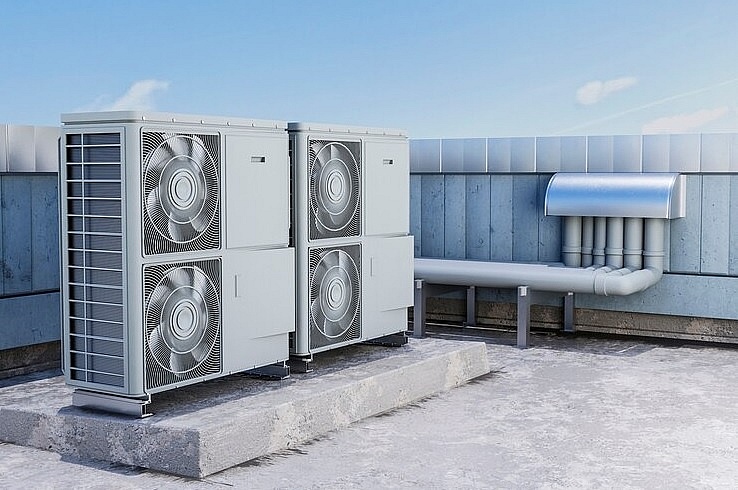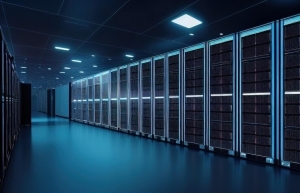Greener methods preferred by aircon manufacturers
In early September, innovative tech and solutions for heating, ventilation, air conditioning, refrigeration, and more were showcased at the Electric & Power Vietnam Expo and accompanying events held in Ho Chi Minh City.
 |
| Greener methods preferred by aircon manufacturers, illustration photo/ Source: freepik.com |
The events attracted more than 350 exhibitors from over 15 countries and featured products spanning the entire value chain of heating, ventilation, air-conditioning, cooling, and refrigeration for smart buildings and industrial parks, attracting the attention of manufacturers and solution providers alike.
In Vietnam, Daikin has taken the lead in promoting refrigerant recovery and recycling by introducing refrigerant lifecycle management solutions through the Refnext system. So far this year, Daikin Vietnam has recovered approximately 1.6 tonnes of R32 refrigerant at its Hung Yen factory and about one tonne of R-410A refrigerant from its service operations, contributing to a reduction of over 3,000 tonnes of CO2 emissions.
Over a decade ago, Daikin Group invented the R32 refrigerant, known for its 99.9 per cent purity and a global warming potential index only one-third that of the previous R-410A refrigerant.
“Currently, 280 million air conditioners use R32 refrigerant, reducing the global warming index by approximately 450 million tonnes of carbon through improvement activities,” said Matsumoto Yosuke, senior director of Daikin Vietnam. “Daikin is currently researching a new hydrofluorocarbon (HFC) refrigerant with an even lower global warming potential index, and we will openly share it once development is complete.”
He expressed hope that regulatory agencies will collaborate with Daikin to address challenges related to the recycling process and the quality of recycled refrigerants, supporting businesses in pioneering environmental protection initiatives.
Assoc. Prof. Dr. Nguyen Viet Dung, who is vice president of the Vietnam Society of Refrigeration and Air-Conditioning Engineers (VISRAE), noted that the refrigeration and air conditioning industry was one of the largest contributors to global warming and ozone depletion. He emphasised the need for technological transformation in the sector to meet the demands of society and Industry 4.0.
“The air conditioner market in Vietnam is growing rapidly, with over two million units sold annually, making it the largest market in ASEAN. Of these, over 90 per cent are household air conditioners with cooling capacities of less than 20,000 BTU/h,” Dung said. “The household and commercial refrigerator/freezer market, with a scale of 2.3 million units per year, is also showing strong recovery after the pandemic.”
The consumption of HFCs and hydrochlorofluorocarbons, which contribute significantly to greenhouse gas emissions, amounts to 5,900 tonnes annually, Dung added.
Globally, electricity consumption for air conditioning accounts for 16-20 per cent of total usage across all sectors, and scientists project this could rise to 30 per cent by 2030.
However, Dung noted that there are technical barriers to converting HFCs to refrigerants with low global warming potential. The VISRAE’s analysis highlights a lack of knowledge about modern refrigeration technology, costly replacement technologies, and the unavailability of necessary equipment in the market.
Additionally, the shortage of high-quality human resources leads to poor practices in installation, operation, and maintenance, resulting in high levels of refrigerant leakage. Dung also pointed out that state policies supporting refrigerant conversion and replacement remain vague.
Yosuke of Daikin Vietnam added that the cost of recovering old refrigerants and replacing them with green alternatives is too high, which has caused delays in consulting and providing green refrigerant conversion solutions.
“We hope for closer coordination between the state and enterprises and propose stronger regulations to ensure compliance with refrigerant usage standards,” he said.
 | Google greenhouse gas emissions grow as it powers AI Google, despite its goal of achieving net-zero emissions, is pumping out more greenhouse gas than before as it powers data centers needed to support artificial intelligence, the company said. |
What the stars mean:
★ Poor ★ ★ Promising ★★★ Good ★★★★ Very good ★★★★★ Exceptional
Latest News
More News
- $100 million initiative launched to protect forests and boost rural incomes (January 30, 2026 | 15:18)
- Trung Nam-Sideros River consortium wins bid for LNG venture (January 30, 2026 | 11:16)
- Vietnam moves towards market-based fuel management with E10 rollout (January 30, 2026 | 11:10)
- Envision Energy, REE Group partner on 128MW wind projects (January 30, 2026 | 10:58)
- Vingroup consults on carbon credits for electric vehicle charging network (January 28, 2026 | 11:04)
- Bac Ai Pumped Storage Hydropower Plant to enter peak construction phase (January 27, 2026 | 08:00)
- ASEAN could scale up sustainable aviation fuel by 2050 (January 24, 2026 | 10:19)
- 64,000 hectares of sea allocated for offshore wind surveys (January 22, 2026 | 20:23)
- EVN secures financing for Quang Trach II LNG power plant (January 17, 2026 | 15:55)
- PC1 teams up with DENZAI on regional wind projects (January 16, 2026 | 21:18)

 Tag:
Tag:














 Mobile Version
Mobile Version